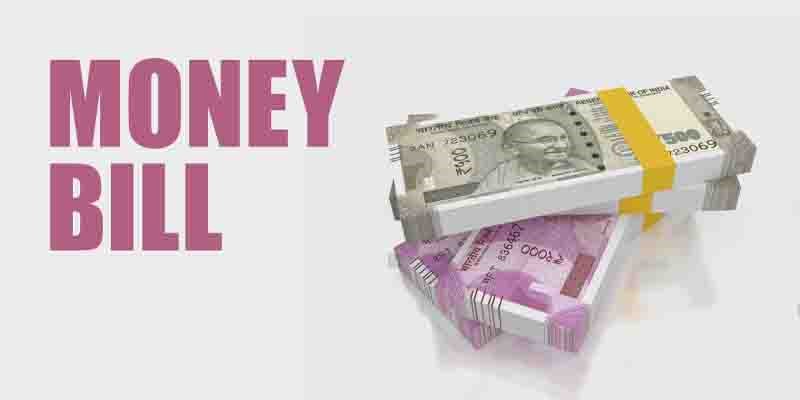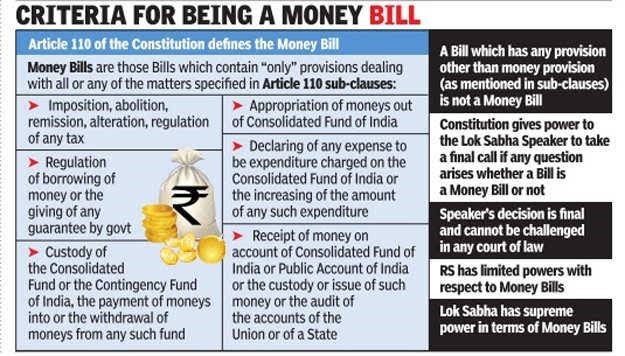Free Courses Sale ends Soon, Get It Now


Free Courses Sale ends Soon, Get It Now



Disclaimer: Copyright infringement not intended.
Context
What is a Money Bill?
Can Any Bill Be Called a Money Bill?
Challenges to Money Bills in the Supreme Court
Current Status and Future Implications

|
PRACTICE QUESTION Q. Which of the following statements regarding a Money Bill in India is/are correct? 1.A Money Bill can be introduced in either house of Parliament. 2.The Speaker of the Lok Sabha decides whether a Bill is a Money Bill or not. 3.A Money Bill must be passed by both the Lok Sabha and the Rajya Sabha. 4.The Rajya Sabha has limited powers to amend a Money Bill. Select the correct answer using the codes below: A) 1 and 2 only B) 2 and 4 only C) 1, 2, and 4 only D) 2, 3, and 4 only Answer: B) 2 and 4 only Explanation In India, a Money Bill is a type of legislation that exclusively deals with financial matters, such as taxation, government finances, or the consolidated fund. Here's the explanation for each statement: 1.Incorrect: A Money Bill can only be introduced in the Lok Sabha (House of the People) and not in the Rajya Sabha (Council of States). 2.Correct: The decision on whether a Bill is a Money Bill or not is made by the Speaker of the Lok Sabha. 3.Incorrect: A Money Bill only needs to be passed by the Lok Sabha. The Rajya Sabha can suggest amendments, but the Lok Sabha has the final say on whether to accept or reject these amendments. 4.Correct: The Rajya Sabha has limited powers about a Money Bill. It cannot reject or amend a Money Bill, and it must return the Bill to the Lok Sabha within 14 days for consideration of its recommendations. Therefore, the correct answer is B) 2 and 4 only. |
© 2024 iasgyan. All right reserved